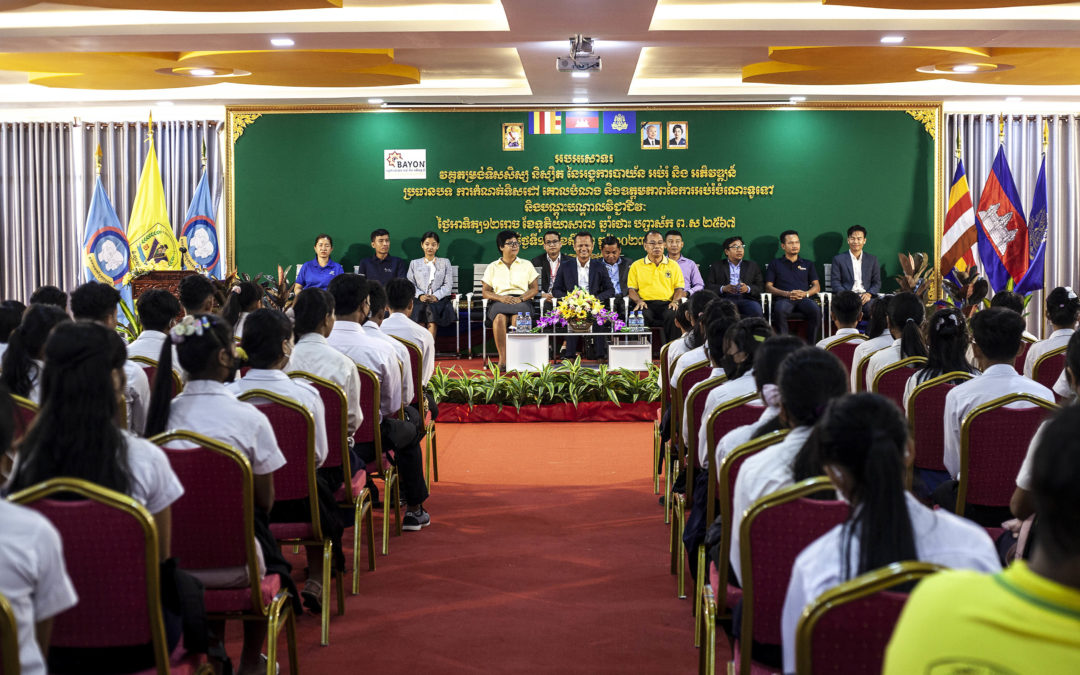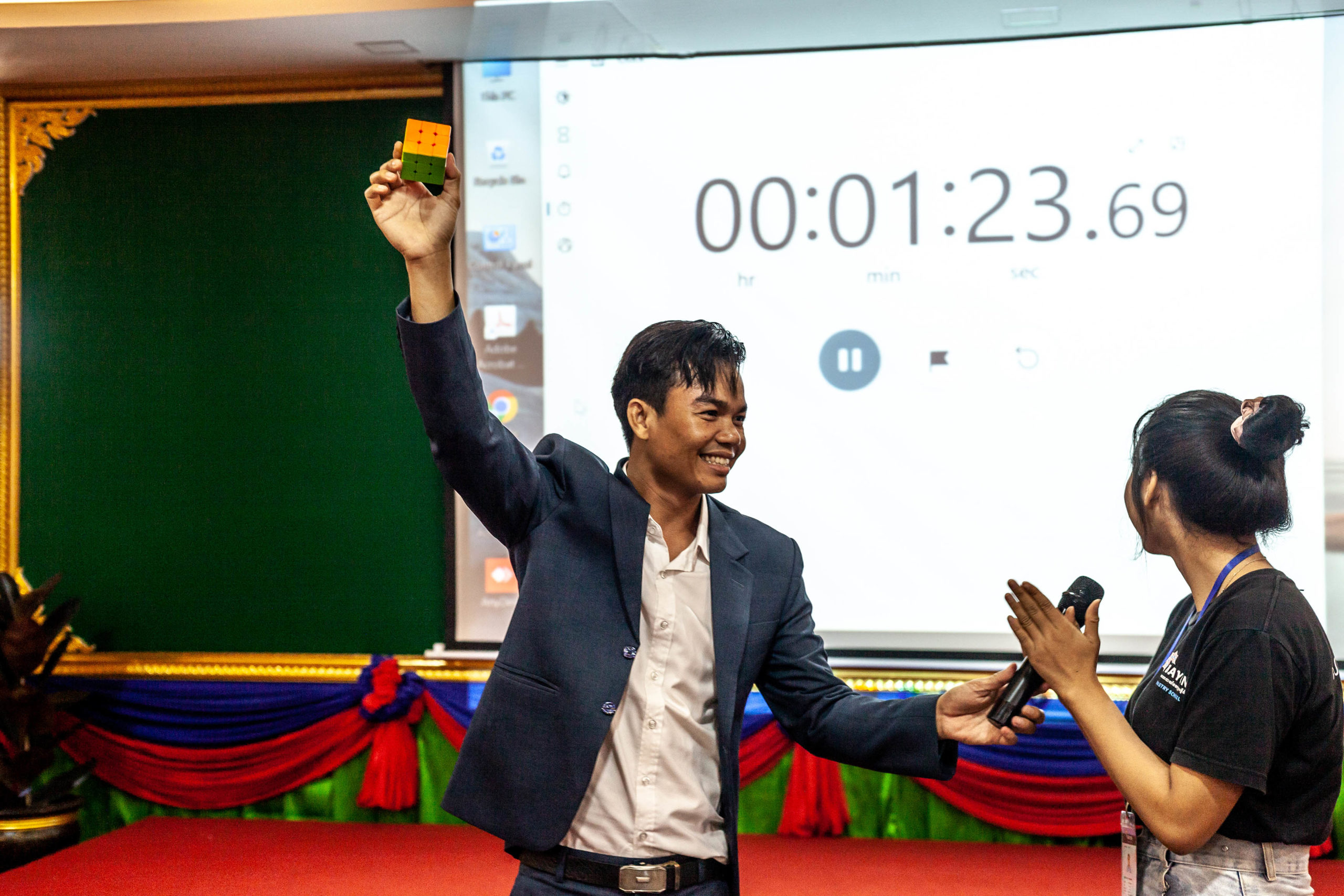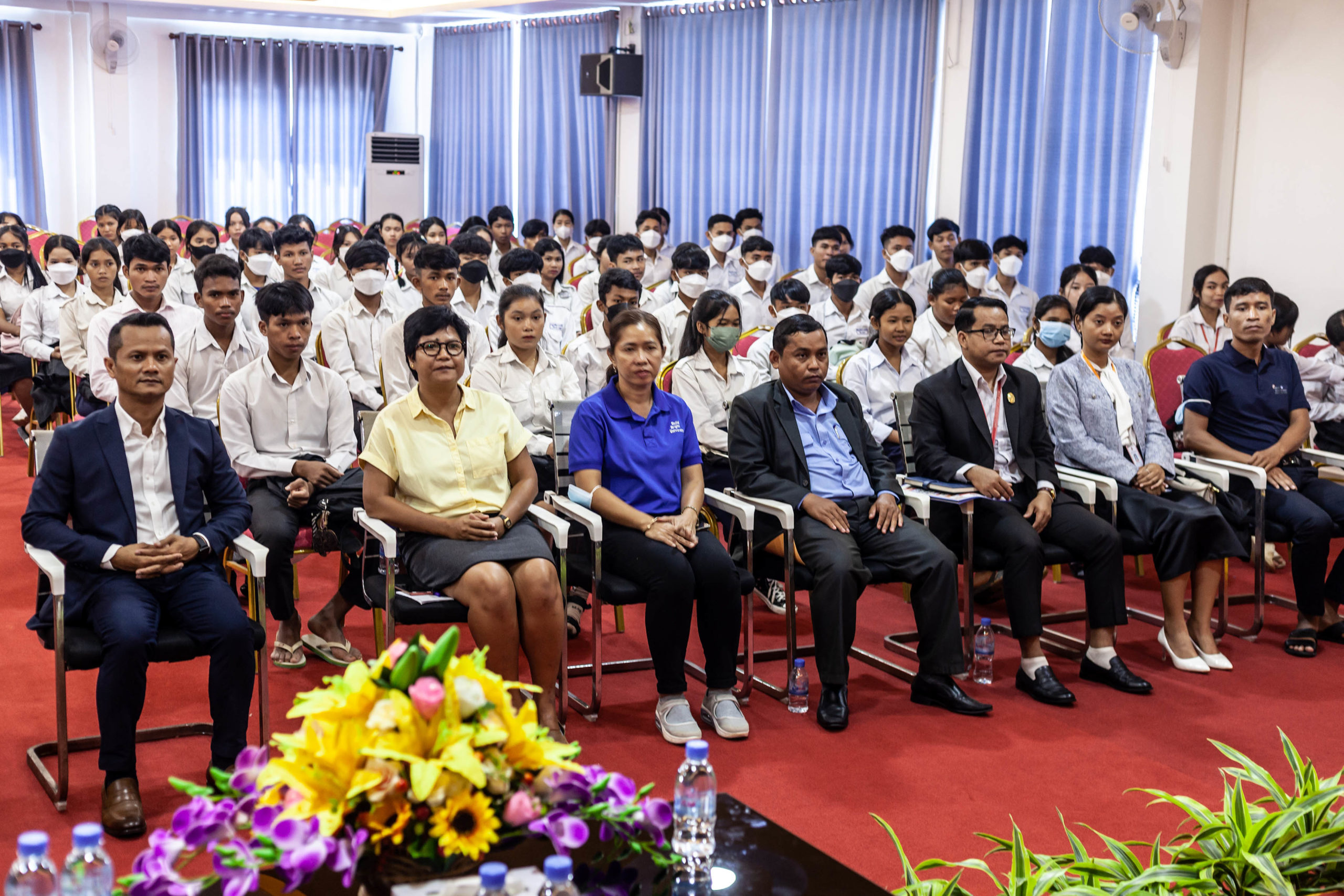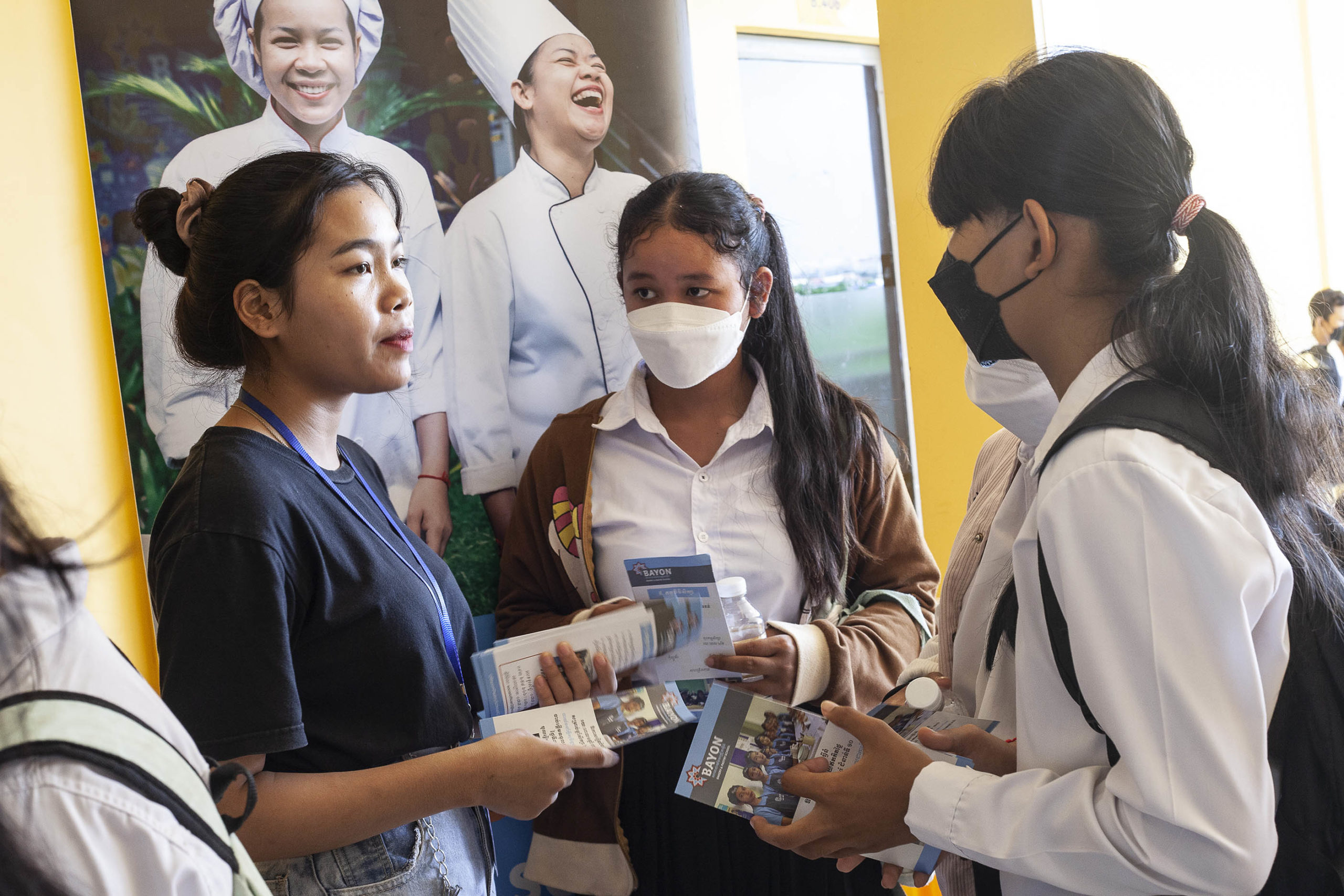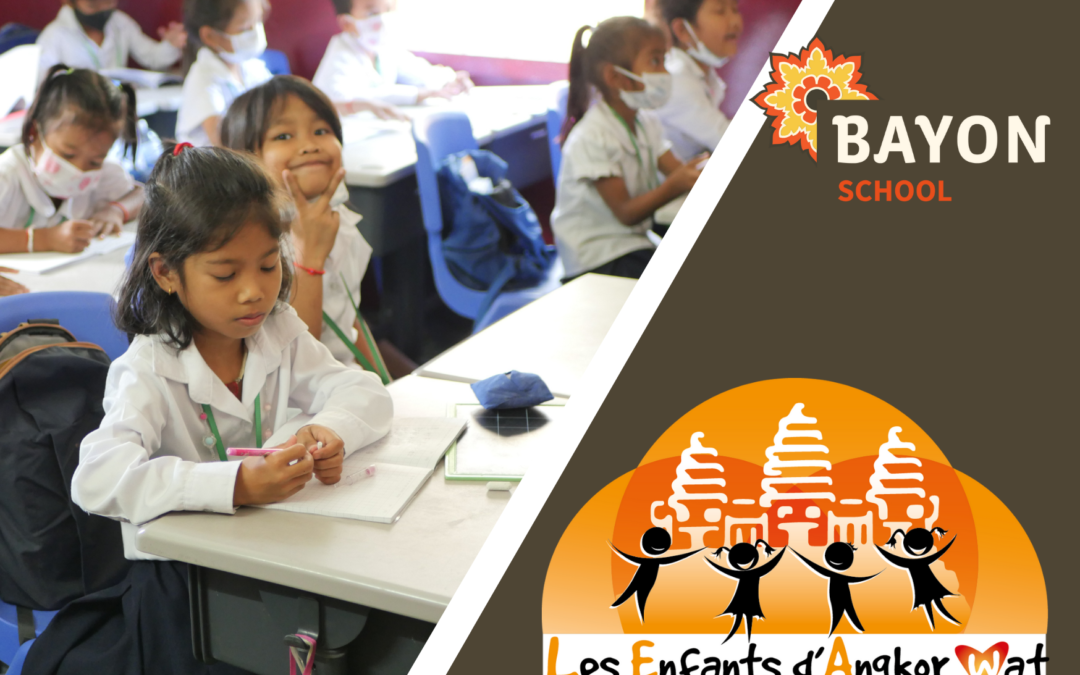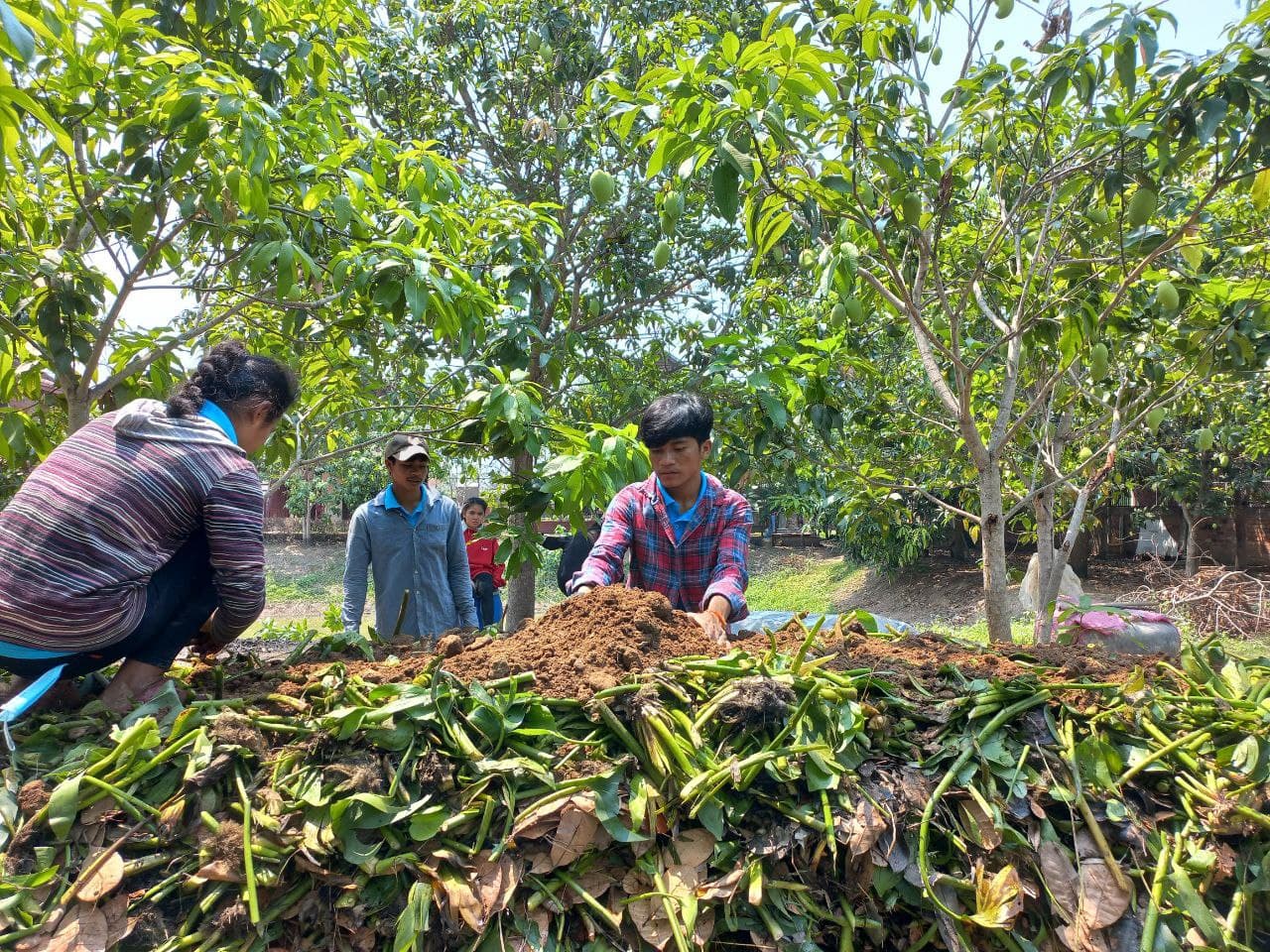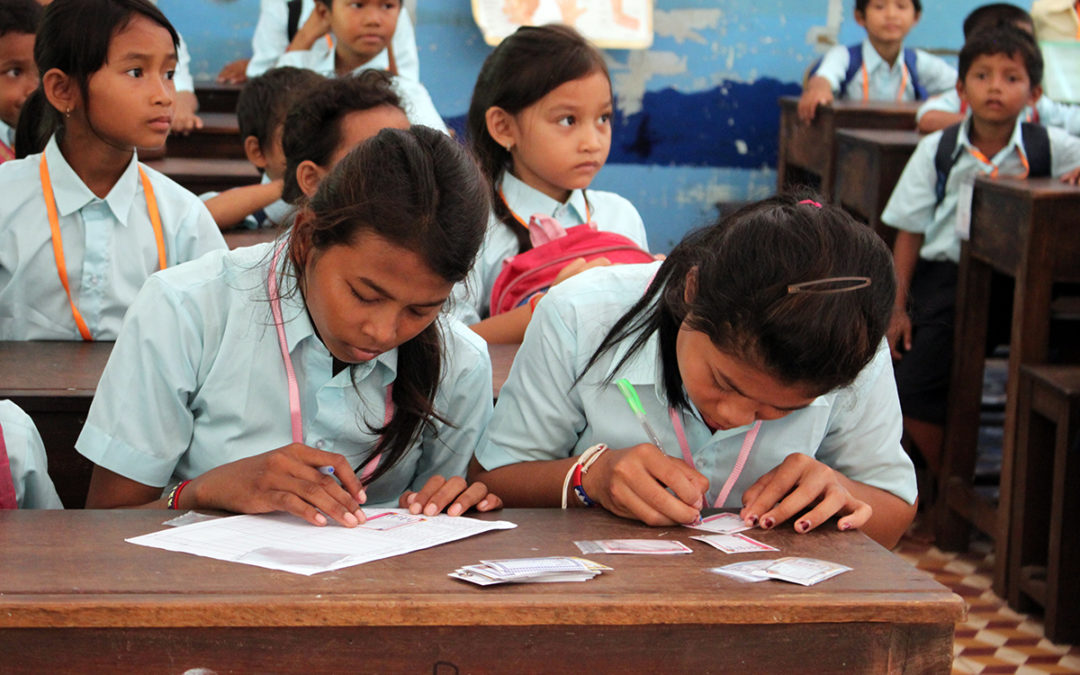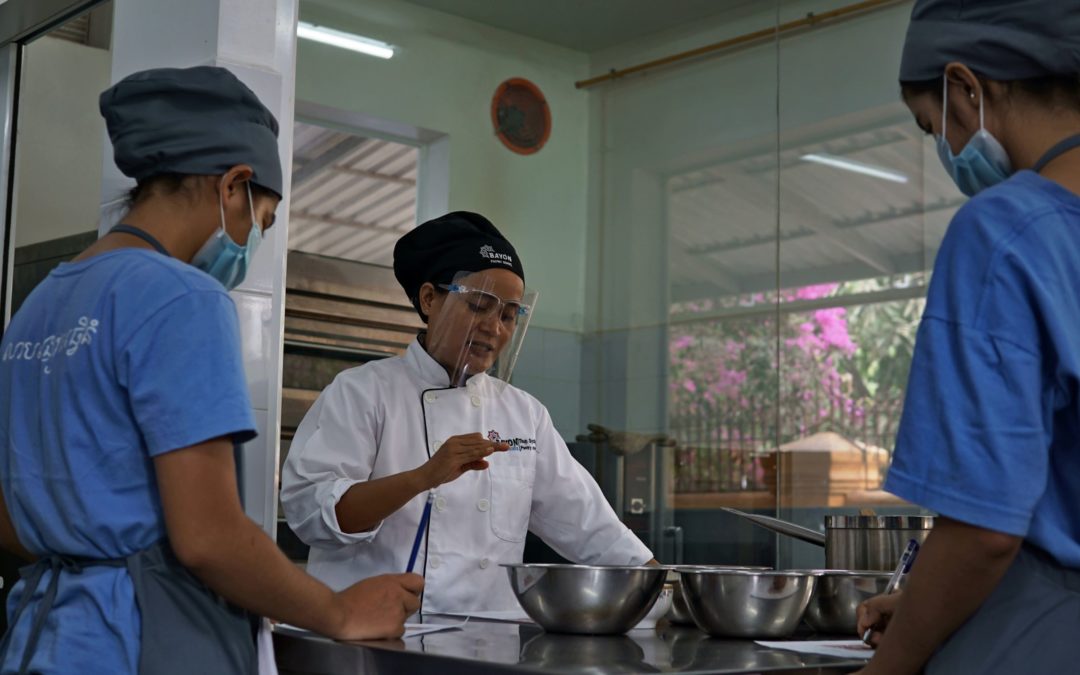The Bayon school welcomed its first pupils in the primary school almost 20 years ago in 1993 and over the years, our association has grown and diversified. A program to accompany students in secondary school, a pastry and bakery school, training in agro-ecology, development of income-generating activities for the families of the students… all of this has been made possible thanks to the precious support of a group of people: our godfathers, godmothers and sponsors.
They started out as a small group of about twenty; now they form a community of more than 450. The Bayon School is a big family, in which each person plays a role: from the volunteers, to Thorth, our executive director, to the occasional donor. The sponsors play a central role in this wonderful picture because they not only bring our projects to life, but also support them in the long term. Accountants, artists, school teachers, from Paris to the small villages of the Vaucluse, London or Singapore, so many different profiles that constitute the primary strength of our projects.
Our gratitude is immense and thanking these men and women is a priority for us. Our regular exchanges with them allow us to maintain strong links over the years. An updated presentation of our projects every other month, a newsletter which discusses fundamental issues every quarter, a direct link with news from the field on social networks and through direct exchange with our communication manager… We do everything possible to place them at the heart of our projects. Authenticity and sincerity are the key words of this relationship which allows us to provide quality education to children living within the Angkor temples.
By sponsoring the Bayon School, they have decided to support this quality education, entirely free of charge for more than 450 young people, taking care of all the basic needs which are necessary to the proper development of children/students. While a quality education is essential to progress in life, it is at least as important to foster personal development through recreational, cultural and sports activities. This is why we have integrated various activities into the school curriculum, from physical activity to cultural and artistic awareness.




